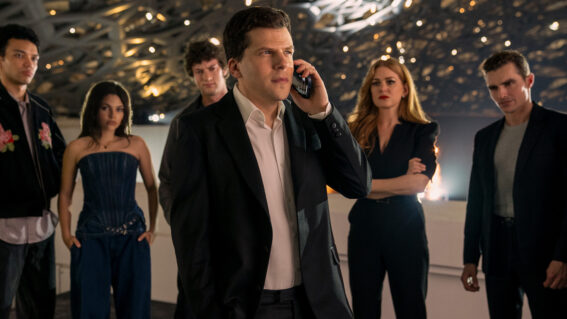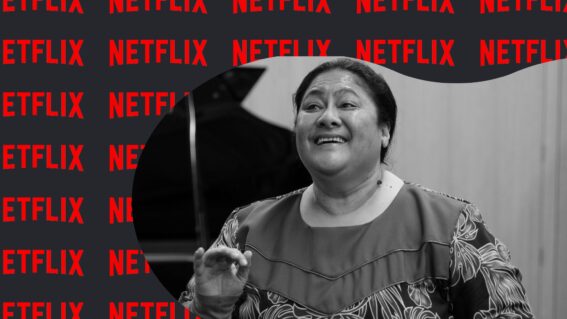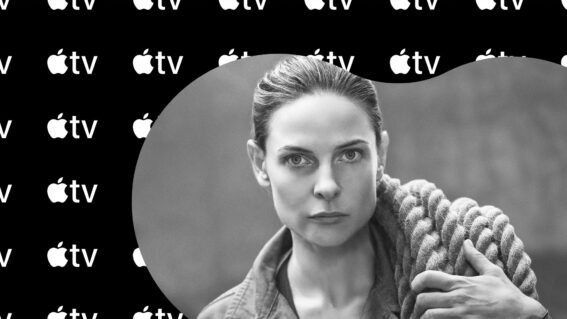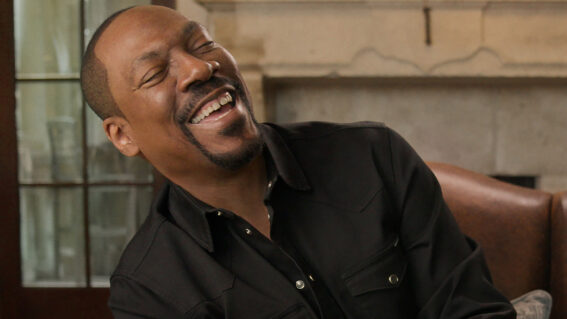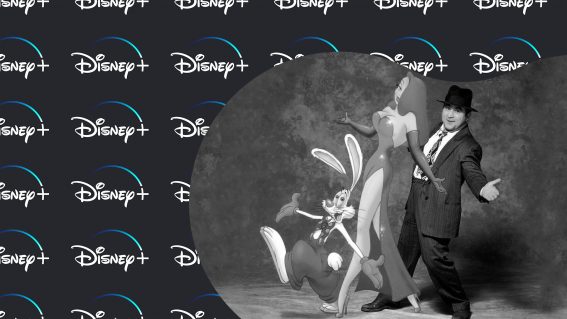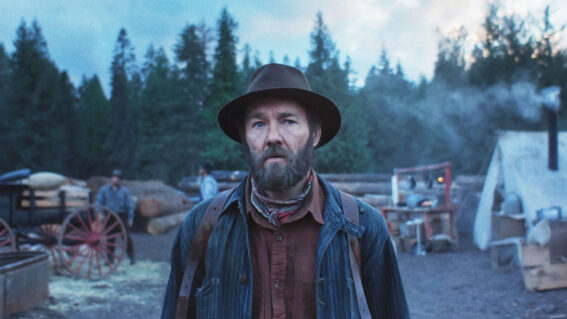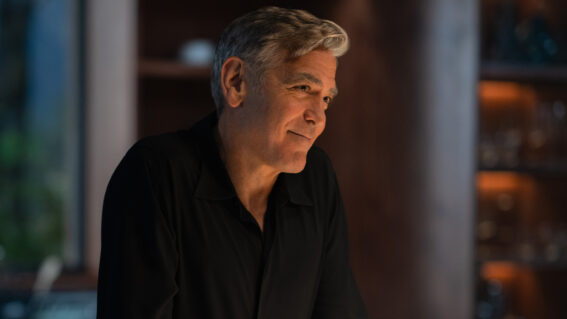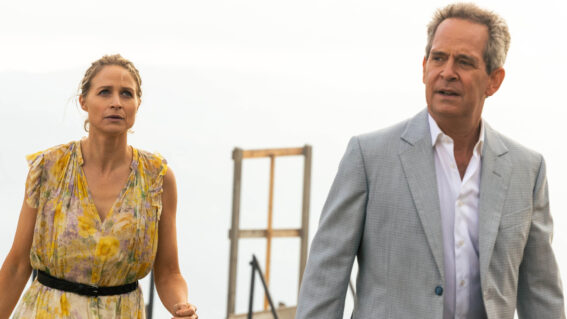NZIFF 2020 Q&A: New Zealand’s Best short films
Hear from the directors of the six NZ films screening in New Zealand’s Best 2020.
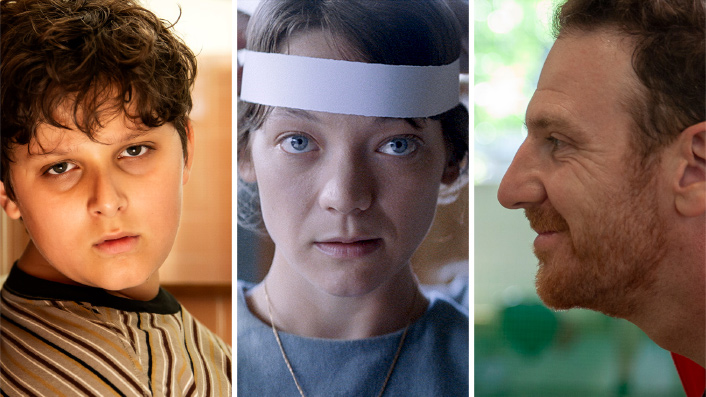
Find out more about the six short films in New Zealand’s Best, streaming online (and playing in select cinemas) as part of Whānau Mārama: New Zealand International Film Festival 2020, running 24 July to 3 August.
Hear from the directors of each of the six NZ films screening in New Zealand’s Best 2020. Chosen by the festival programmers and special guest curator Tusi Tamasese (director of The Orator and One Thousand Ropes), they’re here to enlighten, entertain, and compete for prestigious awards and prizes—which you can help decide as a viewer.
See also:
* Mini-reviews of Whānau Mārama: New Zealand International Film Festival 2020
* All our Q&As with this year’s filmmakers
* Steve Newall’s early picks from the programme
* Liam Maguren’s early picks from the programme
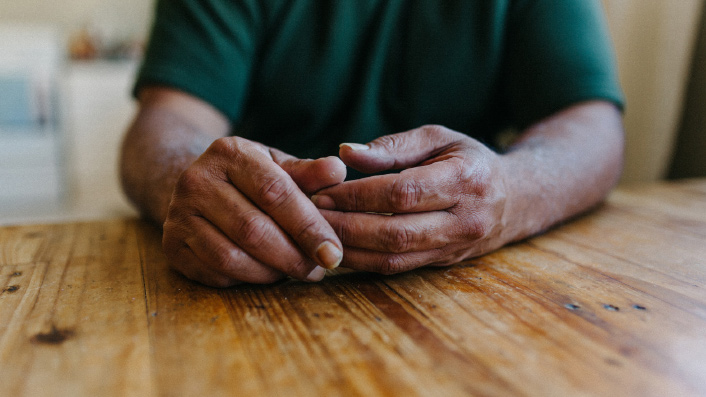
Cian Elyse White, director of Daddy’s Girl
Describe your film in EXACTLY eight words
Māori Daddy Daughter Dementia Drama Funny & Sad.
What drove you to tell this story?
My real-life relationship with my Dad and losing my Nan to Dementia.
What reaction are you hoping to get from audiences?
Understanding and familiarity.
Can you share your favourite memory during your time making this film?
Editing it with Annie Collins and shooting it at home in my Nan’s whare. We shot in the house my Koro built for himself, Nan, my Dad and his siblings. It was special to accommodate the cast and crew in the wharenui during the shoot.
What was the last great film you saw?
Portrait of a Lady on Fire. Perfectly imperfect—an exquisite peek into deep love.
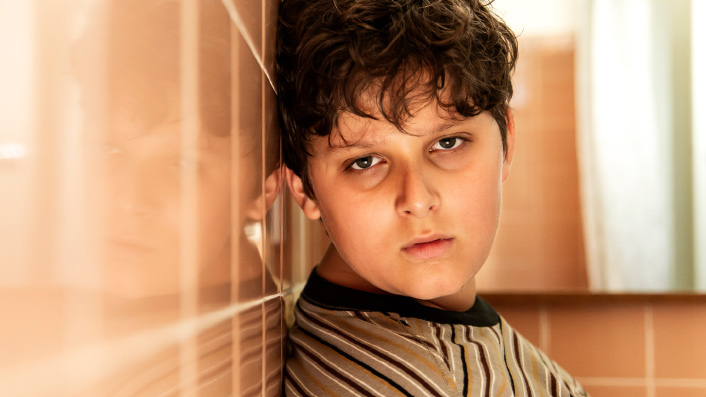
Anthea Williams, director of Safety Net
Describe your film in EXACTLY eight words
Cheeky kid and confused adult bond over swearing.
Boy gets what he needs today despite world.
24 hours in guardian care leads to grace.
What drove you to tell this story?
Julian Larnach, who wrote the film and I work together a lot. I read everything he writes. He feels things so deeply and a friend of his had been asked to adopt a young boy—she’s a primary school teacher. Through that he found a whole world.
When I read his first draft of Safety Net, Terry wasn’t a kid who lived with disability, but he did jump on the bed—despite everything going on in his life. And if I’m honest, it reminded me of myself as a child, even though I could always live with my parents. I suggested to Julian that we work with an actor with disability and he could immediately understand why I wanted to make that change, what it added to the story and how it resonated with what we were trying to explore.
Terry is full of coping strategies, so determined to have every experience he wants, even if it hurts a little or a lot. And he uses humour and talk to cover pain and fear. I wanted to explore that tension.
What reaction are you hoping to get from audiences?
Gosh, well I just hope they get it. I adore Terry and I hope the audience does too. I hope they see this crazy, underfunded (and sometimes privatised) guardian/emergency care system and realise this is a crazy way to care for children.
Can you share your favourite memory during your time making this film?
Well, I don’t want to give anything away, so I won’t talk about the specifics of capturing any particular scene—though I did love capturing performance. But day one of the shoot was William’s 13th birthday and his face was pretty priceless. Up until then, it has basically just been me, him, and his mum in my house reading around a table. Suddenly there’s costume people, a DOP, someone putting makeup on him, people with headphones, and booms, and lights.
What was the last great film you saw?
I only saw Sean Bakers’ The Florida Project a few weeks ago and I was so captivated. The performances of those kids and those adults were truthful, playful, clear and direct. The slow accumulation of events as we circle the plug-hole in this candy-coloured world. And the miraculous ending that doesn’t let adults watching off the hook even a little; it just deepens the world we’ve been sitting in for two hours. It’s beautiful, clever film-making.
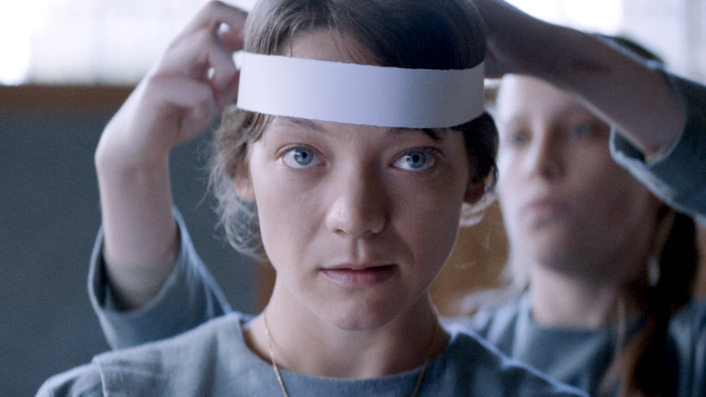
Claire Van Beek, director of Daniel
Describe your film in EXACTLY eight words
(A) Quietly foreboding tale of desire… female sexuality… locusts…
What drove you to tell this story?
It started with a vision I had of a woman on a wild, rocky beach who was in a state of complete anguish and frenzy. I then worked back emotionally from that. The process was actually very fluid, and all the ideas seemed to intrinsically connect to the bigger themes—such as my lizard research leading to the integration of the locusts…. and the subsequent exciting discovery that the locust lifecycle of “Egg, Nymph, Locust” echoed the religious overtones of the film—”Father, Son and Holy Spirit”. Locusts are primal and unashamed, biblical, and Joan is almost jealous of how they can shed their skin and become something else. On top of this, locusts are so visually and aurally fascinating! I bred locusts for the film, and ended up having them in my garage for about a year. They were hilarious, mesmerising and terrifying. Always eating… escaping… mating… often all at the same time. I couldn’t wait to get them on screen.
I’m interested in exploring the full spectrum of female emotion—including rage. Female anger is so misunderstood, and usually just stifled or shoved in a corner. I basically got super tired of such an idealised view of women constantly being thrown in my face onscreen. I’m not interested in women being unattainable, or cute, or perfect. I’m interested in their base desires and flaws and obsessions. Anaïs Nin put it well—“Creation which cannot express itself becomes madness”.
Visually—I had some burning images in my head that I really wanted to sear onto screen, and they all fit into place during the writing and shooting (although not all made it into the film…).
My relationship with religion was a strong influence, perhaps beginning during my childhood Sunday School days. I visited a convent when I was about 8 years old, and that experience resonated very deeply with me—the architecture, the gardens, the isolation, the simplicity. Even at such a young age, I was deeply attracted to the seeming lack of complication in these woman’s lives, and their strong sense of purpose.
What reaction are you hoping to get from audiences?
I hope people will get completely immersed in the world of Daniel. It’s a quietly wild and unrelenting ride, and the film travels very intimately with protagonist Joan. This film belongs to lead actress Edith Poor, after watching you’ll know what I mean.
Basically, I’m itching for audiences to see the talented work of the cast and crew. This is our New Zealand premiere! The team’s mahi on this oily-rag short pulses through every beat of the film. A special note that Daniel features the incredible NZ actress/writer/director Nancy Brunning (who passed away far before her time was due, last year). Although she does not have a lot of screentime, it will be especially moving for some people to see Nancy on screen, as she was an exceptionally remarkable woman and practitioner.
Finally, we’d love to know what online audiences’ reactions are. So if you have any feedback or thoughts after watching the film—get in touch!
Can you share your favourite memory during your time making this film?
Watching the footage, it was as if Simon Baumfield (Cinematographer) had ripped my brain open and sucked the film out of my head and put it on screen. He totally got it. This was my first film, and prior to the shoot I thought “Why on earth does anyone do this?” … the stress was so high, and the thought of leading a team was utterly terrifying. But when that footage started coming in… I can’t even explain that feeling… and I quickly realised “oh, so this is why!”.
What was the last great film you saw?
The Assistant. It was the first film I saw after lockdown, and I’m still buzzing.
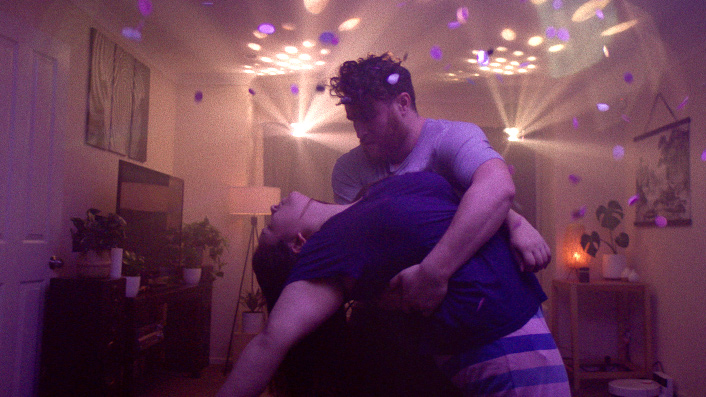
Calvin Sang , director of Love is Real!
Describe your film in EXACTLY eight words
An AI smart-speaker consoles a feuding couple
OR
A couple argues passionately through song and dance
What drove you to tell this story?
We wanted to make a musical that people hadn’t really seen before. Sometimes I refer to it as an undercover musical, because the first half of the film is so different to the ending! I always try to tell stories that draw you in at the start, and then give you something that stays with you when you leave. Even though the film is told in a pretty elevated way, the core of the film is an emotionally charged story that many people will have been through themselves.
We tried extra hard to make sure the characters (played so well by Sarah Nessia and Tyler Wilson-Kokiri) never became unbelievable themselves. Even with all the fantasy elements, there’s actually a pretty logical explanation for it all!
What reaction are you hoping to get from audiences?
We hope they laugh and tap their foot along to the music, but ultimately I hope they’ll be won over, stop asking questions and just go along with the journey.
Can you share your favourite memory during your time making this film?
Seeing all of the bits and pieces come together on set! We had months of prep time to write the script, compose original music, choreograph all the dancing and plan out all the blocking through the set with all the lighting and prop cues. Sometimes you lose track of how everything will go together. When I could see it for real on the director’s monitor, after just staring at mood boards and script notes for the last few months, it was really awesome. The team did such a great job!
What was the last great film you saw?
I’ve been watching more series than movies recently, but the last great series I finished was Watchmen. So great!
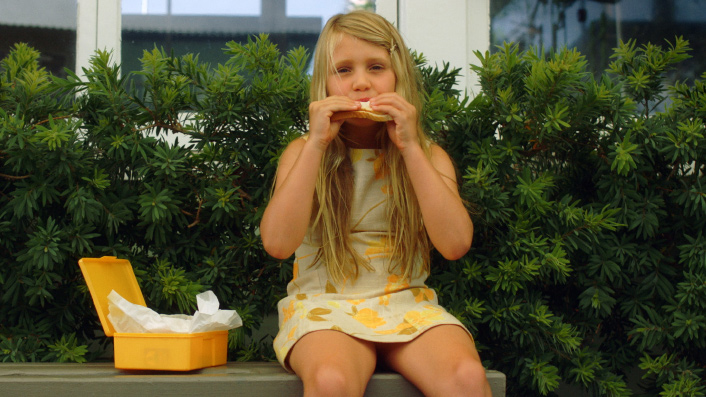
Robyn Grace, director of Oranges and Lemons
Describe your film in EXACTLY eight words
Summer heat, rural life, 1970’s, beat the bully!
What drove you to tell this story?
My mum died suddenly a few years ago, and I wanted to tell a story about what she taught me, without really saying anything. Something about how as girls and women we are told were we are supposed to be and how we are supposed to act, and how we can break out of that but still be true to ourselves.
What reaction are you hoping to get from audiences?
A recognition of a time gone by, childhood memories of innocence, and a good vibe from the underdog winning!
Can you share your favourite memory during your time making this film?
Eastern Rosellas bite! The bird wrangler was going to bring a frozen bird that had died with him, so that our 8-year-old actor could hold it, but when he took it out of the freezer someone had turned off the power so it was rotten and mushy. Our fabulous costume assistant had to ‘volunteer’ to be the hand double in the CU and hold a real rosella—she was only bitten twice!
What was the last great film you saw?
The Assistant—I loved that we were just with her the whole time, that without saying anything we knew exactly how she felt, and that we never saw her boss’s face. Brilliant.
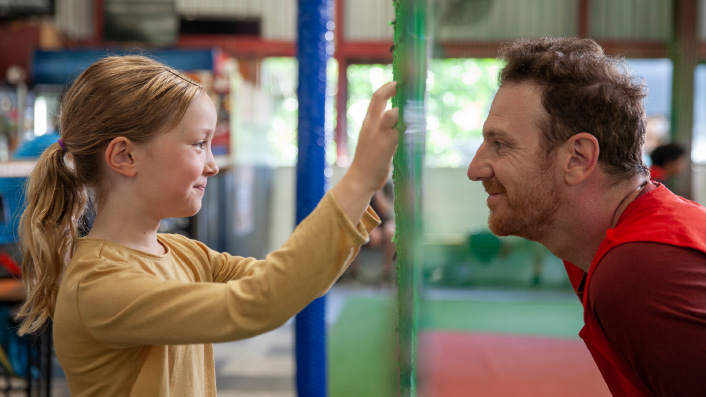
Anna Duckworth, director of Pain
Describe your film in EXACTLY eight words
Girl learns Dad isn’t the hero she thought.
What drove you to tell this story?
It was a seemingly mundane moment from my childhood that always stuck out as a really strong memory for me. The more people I talked to the more it became clear that seeing a parent hurt or in tears was a pivotal and formative experience.
What reaction are you hoping to get from audiences?
I hope they see themselves in the protagonist of the film, and it sparks a memory of childhood—and makes them question how their perception of their parents has changed since then.
Can you share your favourite memory during your time making this film?
We took our on-screen family to Rainbow’s End for a bit of bonding, and it was really special to see them all having fun and getting to know each other. Unfortunately, I was quite pregnant and not allowed on any of the rides! Boo!
What was the last great film you saw?
Booksmart—kind of interesting that even in my thirties, I related so much to the feeling of running out of time to do dumb stuff before you have to knuckle down and be responsible.





